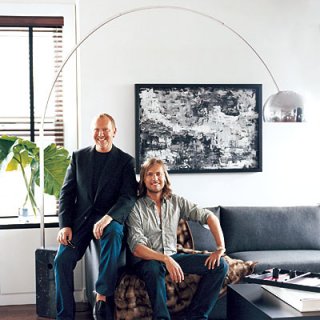I've been thinking about this alot lately, especially with the news of Galliano and Decarin.
I would say in the last 20-25 years, we have really seen a surge in the fashion designer becoming a personality, a certified celebrity. This has obviously been fueled by social media in the last few years and it doesn't look like it's going to slow down anytime soon.
So what are your thoughts on the rise of the fashion designer as a celebrity affecting the industry? We have breaking news about Galliano, McQueen, Tom Ford, very public designers on one side, with news of say, mysterious Margiela walking away from his label on the other.
How does celebrity affect the brand's image and message? Does it enhance it, or does it dilute it? Does a designer need to be famous before they can be successful? Or could they go about it a way that Margiela has gone about it 20 years ago and still have a voice in fashion?
I would say in the last 20-25 years, we have really seen a surge in the fashion designer becoming a personality, a certified celebrity. This has obviously been fueled by social media in the last few years and it doesn't look like it's going to slow down anytime soon.
So what are your thoughts on the rise of the fashion designer as a celebrity affecting the industry? We have breaking news about Galliano, McQueen, Tom Ford, very public designers on one side, with news of say, mysterious Margiela walking away from his label on the other.
How does celebrity affect the brand's image and message? Does it enhance it, or does it dilute it? Does a designer need to be famous before they can be successful? Or could they go about it a way that Margiela has gone about it 20 years ago and still have a voice in fashion?
Last edited by a moderator:



 ...
...